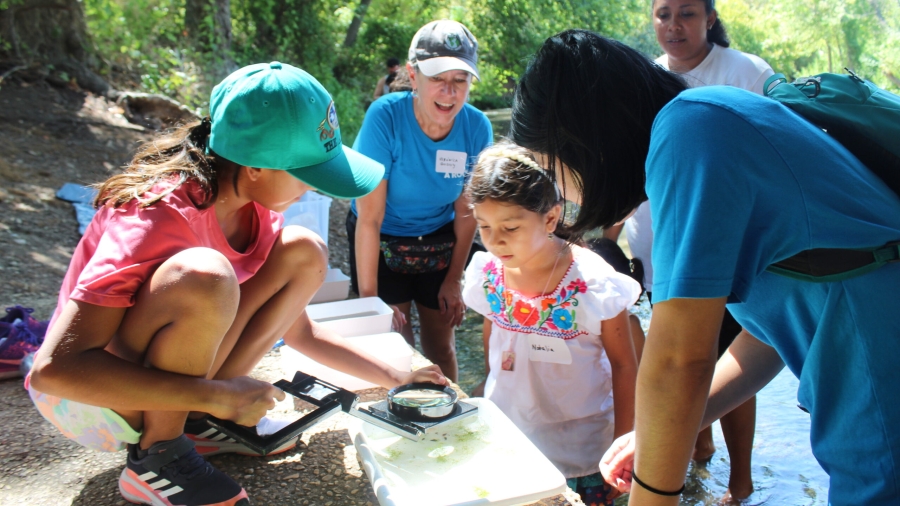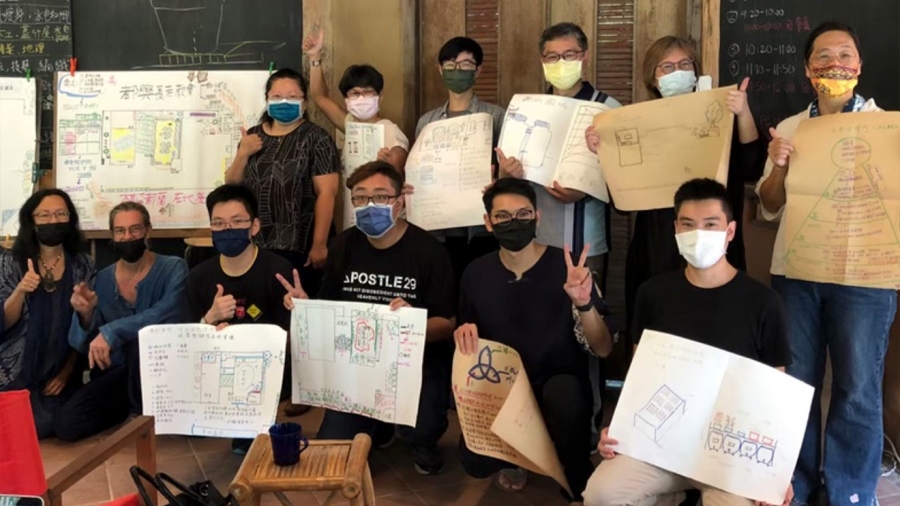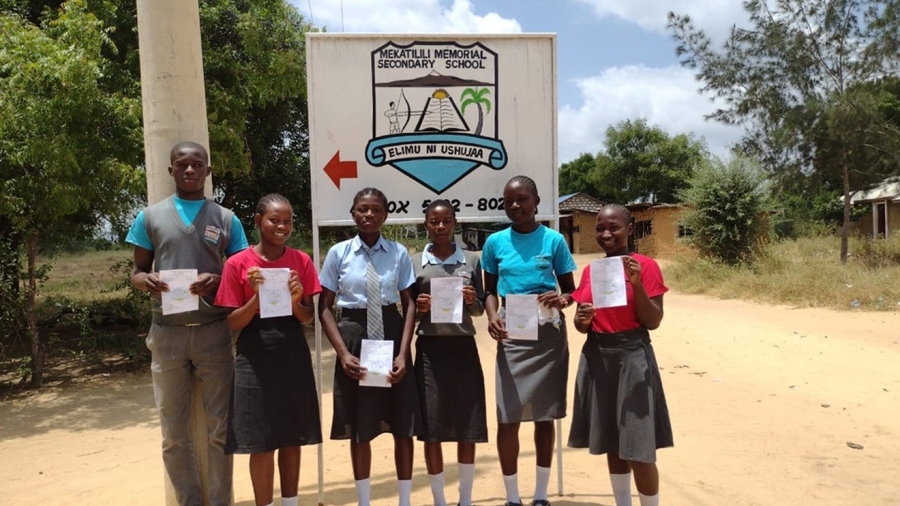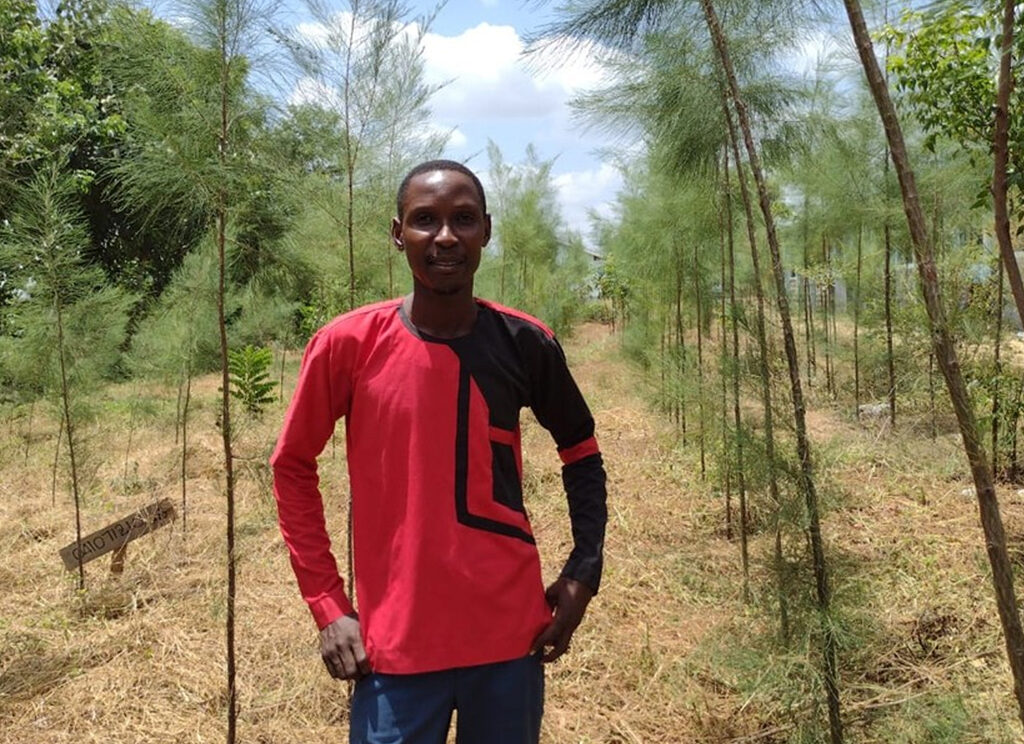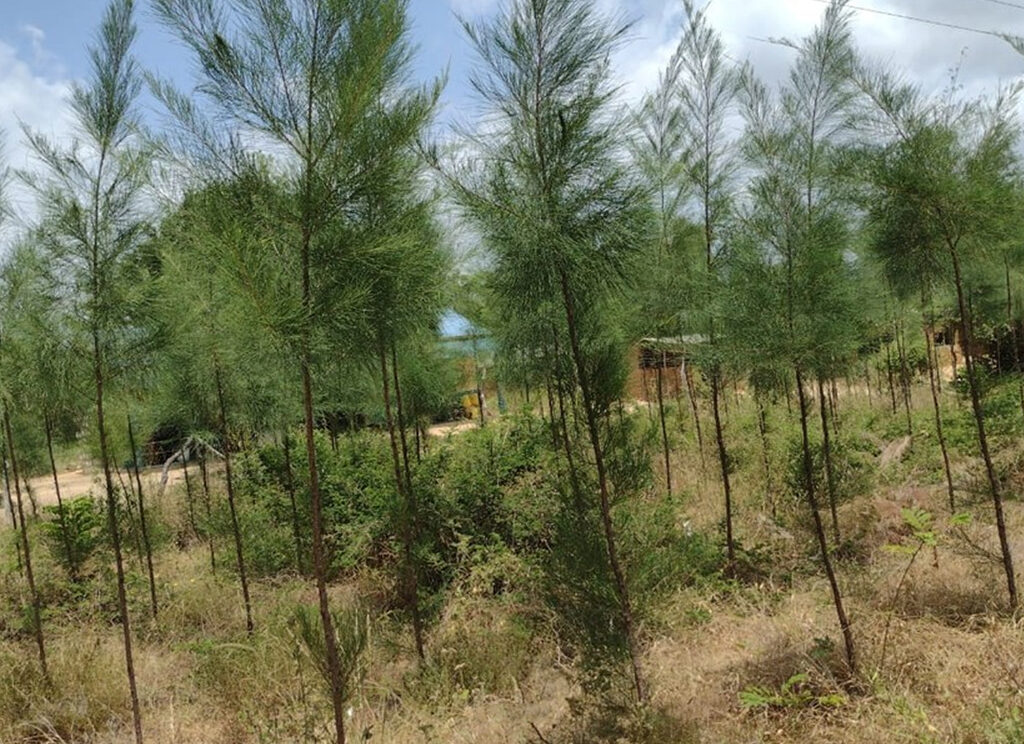The choir of God’s creation resounds with every language from every people. In our day, though, disparities in wealth, education, ethnicity and other factors hinder certain people’s access to God’s creation. In the United States, many Hispanic/Latino families lack access to recreational facilities like parks and trails. In fact, only 1 in 3 Latinos live within walking distance of a park, according to UT Health San Antonio, and ‘only 19% of Latino children have access to recreational green spaces close to their neighbourhoods, compared to 62% of their white peers’. Time in nature benefits physical and mental health, as well as spiritual wellbeing. When the connection between people and the rest of creation is broken, both human and non-human creatures suffer.
Seeking to address this problem in Central Texas, A Rocha USA’s Conservation Project Director, Verónica Godoy, found multiple groups offering environmental education programmes for children, but few that served families together. Hispanic families are often tight knit, and everyone deserves safe and fun access to nature, from children, to parents, to teenagers, to toddlers. To reach underserved Hispanic families with language barriers, Picnics en el Arroyo was born.
A Rocha USA’s monthly Picnics en el Arroyo bring Spanish-speaking families to state parks and private green spaces with access to creeks, springs or rivers. At each picnic, they explore the watershed and its biodiversity through recreational and educational activities. After nearly two years of picnics, families have explored Austin’s wild spaces through numerous hikes and learned to identify local birds, mammals and insects. They have pressed flowers to make crafts and made seed balls to plant native wildflowers. They have made art about the endangered Yellow-cheeked Warbler and played under Texas’ grand oak trees. They have looked up to behold grand geological features and crouched down to observe aquatic macroinvertebrates.
‘Un dia al aire libre’ (a day outdoors) is full of laughter, curiosity, exercise and play. One participant of Picnics en el Arroyo expressed her enthusiasm: ‘I love to share time with my family and other families. Sometimes I don’t feel like going out, but Picnics at the Arroyo motivates me and helps me have special moments with my family.’ Others have celebrated discovering new species and exploring new places. Some families return picnic after picnic, allowing us to see them grow a deep love for God’s creation in their local environment.
After the first few Picnics en el Arroyo in 2022, Verónica reflected, ‘We expect that Picnics en el Arroyo will continue to connect families with creeks and parks in Austin, enable them to spend more time outdoors, and empower them to make decisions that will contribute to the health of the local ecosystems and the community.’ Now, after hosting 16 picnics in 11 parks with 397 participants, we are seeing this vision come to life.
